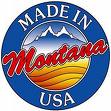Missoula, MT — The Montana Hospital Association (MHA) based in Helena, Montana has selected Big Sky Commerce as the preferred Merchant Service Provider for its members. MHA member hospitals and clinics in Montana will be able to enjoy significant savings in payment processing services with Big Sky Commerce. “Recommending a local solution for merchant services for our members only makes sense,” states Mike Roberts, Director of Business Development for MHA Ventures. “Big Sky Commerce offers us that solution while focusing on quality customer care and a very competitive rate structure for all aspects of payment processing. They are knowledgeable in the industry representing all major credit card brands and we really appreciate the opportunity to work with a Montana business.” Members of Montana Hospital Association now have access to streamlined methods of accepting all forms of electronic payments, whether it be in the office, through a secure website, or in a mobile environment. Kevin Davis, President of Big Sky Commerce, notes that “to be designated the preferred Merchant Service provider for MHA is an incredible honor. We look forward to working closely with their membership to provide the best possible options for payment processing. Electronic payment processing, along with better efficiencies in accounts receivable, have become more prevalent in the healthcare industry. Big Sky Commerce is excited to offer competitive pricing bundles, exceptional local service, and secure payment processing solutions to members of MHA.” Members of MHA may contact Big Sky Commerce directly to obtain preferred pricing on merchant accounts and payment processing solutions.
Category: Latest posts
COURT CAPS CREDIT CARD SWIPE FEES
COURT CAPS CREDIT CARD SWIPE FEES
NATIONAL RETAIL FEDERATION DISAPPOINTED
A federal appeals court has agreed with a Federal Reserve rule that placed a 21-cent cap on swipe fees that banks charge retail stores for each debit card transaction. After initially proposing to limit fees to 12 cents, the central bank issued a final rule in 2011 that capped fees at 21 cents. Soon after, the National Retail Federation along with other retail groups, filed a lawsuit against the Federal Reserve, saying that the fees should be lower. In 2013, Judge Richard Leon ruled in NRF’s favor and ordered the Fed to recalculate the cap at a lower level, but the Fed appealed. The U.S. Court of Appeals in Washington overturned Leon’s ruling. Although the ruling is a win for the Federal Reserve and the banks, nothing is expected to change for consumers.
Retailers are disappointed in Swipe Fee Ruling. The National Retail Federation expressed disappointment in the court’s decision to keep the Federal Reserve’s cap on debit card swipe fees at 21 cents rather than reducing it to a lower level. The NRF believes the current cap is far higher than intended by Congress.
Under the Durbin Amendment provisions of the 2010 Dodd-Frank Consumer Protection and Wall Street Reform Act, the Federal Reserve was required to adopt regulations that would result in debit card swipe fees that were “reasonable” and “proportional” to the actual cost of processing a transaction. The Fed calculated the actual average cost at 4 cents per transaction and initially proposed a cap no higher than 12 cents, but eventually settled on 21 cents after heavy lobbying from the financial services industry. NRF claims the cap cutting swipe fees in half has saved many retailers and consumers billions of dollars but the fees, especially for small ticket transactions, are still far too high. They are reviewing the decision and will determine whether to appeal. Prior to the financial crises in the U.S. the average fee per transaction averaged about 45 cents.
The U.S. Court of Appeals for the District of Columbia Circuit struck down a lower court ruling that sided with retailers saying the Federal Reserve should lower fees even more.
Although it was not clear that consumers got any of the savings, one industry-sponsored survey found that 67% of retailers kept prices the same or raised them instead of passing on savings to customers. A 2013 report by the Merchants Payments Coalition showed that swipe fee caps saved consumers $5.8 billion in 2012 through lower costs for goods and services.
Bank of America, J.P. Morgan Chase and Wells Fargo banks took big hits to revenue after trying to charge new debit card fees, but public outrage caused them to reverse course. The ruling also impacts Visa and Mastercard, which collect swipe fees for the banks and keep a portion for the use of their payment networks. Following the announcement of the Court’s decision shares of Visa rose 4% in trading but MasterCard was down 9%.
Retail is the nation’s largest private sector employer, supporting one in four U.S. jobs – 42 million working Americans. Contributing $2.5 trillion to annual GDP, retail is a daily barometer for the nation’s economy. NRF is the world’s largest retail trade association, representing discount and department stores, home goods and specialty stores, Main Street merchants, grocers, wholesalers, chain restaurants and Internet retailers from the United States and more than 45 countries.
Sources: National Retail Federation; CNN Money
Big Sky Commerce Sponsors Made In Montana Tradeshow For 9th Year In A Row
Big Sky Commerce is a local Montana business. We believe in and support Montana’s entrepreneurial spirit. BSC is proud to have sponsored the annual Made In Montana Tradeshow since 2005. The two-day trade show connects wholesale store buyers from across the region with over 100 members of the Made in Montana program.
Montana artists, designers, and manufacturers bring to the show their work and products whether visual art, fine crafts, gourmet foods and beverages, or unique apparel, accessories, or home decor. The show will be held in Helena, MT March 21-22, 2014. During the Product Showcase day on Saturday, March 22nd, the public is invited to experience Made in Montana products that will soon find their way into stores statewide.
Since 2003, Big Sky Commerce has operated nationwide as an Independent Sales Organization representing the world’s largest and most secure payment processing networks.
If you attend the 2014 Made In Montana Tradeshow, please be sure to stop by the Big Sky Commerce Booth #701!
Montana Medical Association Press Release
Montana Medical Association selects Big Sky Commerce as its preferred Merchant Service Provider
Missoula, MT — The Montana Medical Association (MMA) based in Helena, Montana has selected Big Sky Commerce as the preferred Merchant Service Provider for its members. MMA members will be able to enjoy significant savings in payment processing services with Big Sky Commerce.
“Because our association is focused on quality patient care for Montanans, it was an easy choice,” states Jean Branscom, Executive Vice President of Montana Medical Association. “Big Sky Commerce maintains a similar focus on quality customer care, while offering a very competitive rate structure for all aspects of payment processing. They are knowledgeable in the industry representing all major credit card brands and we really like the thought of working with a Montana business.”
Members of Montana Medical Association now have access to streamlined methods of accepting all forms of electronic payments, whether it be in the office, through a secure website, or in a mobile environment.
Kevin Davis, President of Big Sky Commerce, notes that “it is an incredible honor to be chosen as the preferred Merchant Service Provider for MMA. Electronic payment processing, along with better efficiencies in accounts receivable, are becoming more prevalent in the healthcare industry. Big Sky Commerce is excited to offer competitive pricing bundles, exceptional local service, and secure payment processing solutions to members of MMA. We look forward to serving MMA members in a long-term capacity.”
Members of MMA may contact Big Sky Commerce directly to obtain preferred pricing on merchant accounts and payment processing solutions.
About Big Sky Commerce
Started in 2003, Big Sky Commerce is headquartered in Missoula, Montana and serves as a registered Independent Sales Organization for Visa, MasterCard, and other major card brands. Representing the world’s largest and most secure payment processing networks, Big Sky Commerce offers credit and debit card processing, merchant accounts, ACH and eCheck processing, payment gateways, and point-of-sale payment hardware and applications. Big Sky Commerce works with most industry types and is committed to providing excellent customer service, competitive fees, and PCI-compliant payment processing solutions. Big Sky Commerce serves as a business resource for all aspects of electronic payments. For more information, please visit www.bigskycommerce.com or call 406.327.0611.
About Montana Medical Association
The Montana Medical Association was established in 1879, and was instrumental in establishing hospitals, educational and research advancements and in implementing the advantages derived from shared knowledge of their physician members. Today’s mission of the Montana Medical Association is to serve its members as an advocate for the medical profession, quality patient care, and the health of all Montana citizens. For more information, please visit www.mmaoffice.org or call 406-443-4000.
-End-
Big Sky Commerce merchants were unaffected by the recent data breach involving URM Stores, Inc.
Recently, a cyber-attack affected approximately 160 grocery stores in Montana, Washington, and Idaho. Over twenty cities and towns in Montana were affected, including some businesses in our own backyard. Payment systems utilized by URM Stores, Inc., a retailers’ cooperative, were temporarily compromised, revealing some customers’ credit and debit card data. As a result of the breach, customers of some URM stores began seeing mysterious charges appear on their credit card statements. A URM Store member and grocery store (who prefers to remain anonymous) in Frenchtown, Montana, was unaffected by the data breach. This particular store uses the payment processing services of Big Sky Commerce rather than systems provided by URM Stores. Big Sky Commerce provides additional security to our merchants in order to prevent such cyber-attacks, including important steps of maintaining PCI Compliance.
PCI Compliance involves an annual online questionnaire (and network scans in some cases) for merchants to complete to ensure they are taking all reasonable measures to prevent credit card theft and data breaches. Our compliance certifications include $100,000 data breach insurance for each merchant. PCI Compliance plays an important role in protecting both merchants and customers from credit card fraud.
During these busy holiday times, dealing with credit card theft is the last thing you need on your to-do list. Extra protection for merchants, as provided by Big Sky Commerce, minimizes the risks associated with fraud and data breaches in the payments food chain.
Written by Lexi Standley
Factors to Consider When Choosing your Merchant Service Provider
We were pleased to be mentioned in this week’s CardNotPresent.com featured article as follows:
November 7, 2013
The Card-Acceptance Conundrum: ISO or Gateway?
Where Do Growing CNP Merchants Turn for Merchant Services?
By CardNotPresent.com Staff
Every day, many small merchants reach a tipping point. They’ve outgrown their current method for accepting payment and it’s time to figure out how to accept major credit cards. For many merchants – especially online entrepreneurs – figuring out how to take that next step is a challenge.
“A small merchant is focused on building a business, getting customers, creating products,” says John Rante, chairman and CEO of BluePay Processing, a company that focuses on technology-driven payment solutions. “They’re often surprised at the all the things they have to consider when they reach the point where they’ve outgrown the micro-payment or third-party solutions like PayPal, or Square.”
One of the first considerations for most merchants is cost, but paying for card processing services shouldn’t be a road block. Writing in Forbes, contributor TJ McCue says the benefits of accepting card payments often outweigh the costs. “Studies show that when people are given more payment options (beyond cash) they are more likely to make impulse purchases, join loyalty programs and spend more per purchase – and that can only help a business grow.”
That doesn’t mean cost isn’t important, but as Kevin Davis, president and CEO of Montana-based merchant service provider Big Sky Commerce is quick to point out, “price is far from the most important consideration” for merchants looking for a card payment solution. Davis and others who spoke to CardNotPresent.com agree that finding a solution that matches the merchant’s business should be the top goal.
Generally, there are two paths for merchants who want to accept card payment (credit or debit) online or by telephone. The first is to sign up with one of the multitude of payment gateways, which specialize in card-not-present transactions. The second is to establish a relationship with an independent sales organization (ISO) or acquirer.
Payment Gateways
In simple terms, gateways offer a merchant the ability to connect a Website or a MOTO computer terminal to a secure remote application that collects payment information from a customer, authorizes the transaction and processes the payment. Most gateways provide shopping cart software that attaches to an existing site or tools for software developers to integrate the payment function into existing Websites or software. It’s also the case that many off-the-shelf shopping cart or accounting/billing applications have the ability to integrate directly with a payment gateway.
This integration is the big plus for gateway solutions. It’s simple, straightforward, and when done well, is “invisible to customers.” Gateways also can be less expensive than using a merchant service provider and typically are easier to qualify for. And because they’re software-based, they typically include a rich set of online tools for analysis and reporting.
A reputable gateway, says John Bodine, vice president of sales and marketing at Authorize.Net, a top-tier gateway, “provides the most reliable, secure method for handling payments available to merchants outside the brick-and-mortar world.
So what should a merchant be looking for?
First, top payment gateway providers will provide a seamless, hassle-free customer experience. The benefits of accepting cards will go away quickly if interaction with the payment system causes customers to abandon their shopping carts midstream.
Good gateways authorize and transmit transactions reliably, efficiently and should accept all major credit cards. And of course, they should integrate easily and seamlessly with the software used for the merchant’s Web site or MOTO operation. And the best will offer integration support and will be adaptable to the merchant’s business model, including subscriptions or recurring billing, for example. Every gateway should comply with the latest security best practices and be compliant with the rules laid out by the PCI Data Security Standards.
Finally, transaction pricing should be competitive and transparent. That means excellent reporting tools and clearly defined fee structures.
The good news is that there are plenty of choices.
ISOs/Merchant Service Providers/Acquirers
Independent sales organizations, whether they are acquirers in their own right, with connections to the card networks, or contract with an acquirer, are, in effect, middlemen. And while their compensation, in theory, adds to the cost of processing card payments, the services they provide can add value to a merchant’s card-not-present business and often save money.
While it varies from one ISO to the next, even with an ISO, Web or MOTO transactions will generally end up going through a gateway.
“A good ISO,” says Big Sky’s Kevin Davis, “has relationships with more than one gateway and can do the work of finding the one that’s best for a particular merchant.”
That relationship also gives them leverage to solve problems, negotiate pricing and other contract terms, and be an advocate for the merchant. ISOs can monitor the market and even switch to a better gateway without affecting the contract with its merchants.
But most important, ISOs inject a personal component into the card acceptance equation.
“Merchant service providers work with our customers to prevent problems and to solve those problems that occur,” Davis explains. “We help them be PCI compliant, help them minimize chargebacks and other issues, and work with them to resolve any difficulties.”
That kind of hands-on relationship is going to become even more important in the next few years as the 2015 deadline for meeting the merchant requirements for EMV standards loom.
EMV is the standard for credit/debit cards that include a built-in chip that’s very difficult to counterfeit, unlike the data on magnetic stripes. To encourage adoption, Visa, Mastercard and other networks have determined that after the 2015 deadline they’ve established, responsibility for card fraud will shift from financial institutions that issue cards to the merchants who accept them. It’s not clear how the EMV rollout will affect card-not-present transactions, where the chip on the card is meaningless, but new technologies like one-time password displays on cards could be part of the solution.
While those responsible for the EMV rollout are working with ISOs and gateways alike, Davis believes the advent of EMV will enhance the position of quality merchant service providers.
“We’ll have the ability to educate and assist our customers as the EMV picture becomes clear,” he says. What should a merchant look for in an ISO? The most important factor is service, Davis says. “You want to be able to talk to someone who works with you, knows you, and knows your business. We’ve had customers leave for a gateway solution only to come back because they want the personal service an ISO provides.”
It’s also important to determine the options available from an ISO and find companies that provide those that fit the needs of your business model and will grow as your business grows.
Price, of course, shouldn’t be overlooked. But Davis and others who spoke to cardnotpresent.com say that it should come into play after a merchant has located and vetted several ISOs who can meet their needs in other regards. “Pricing is very competitive,” Davis says. “If a merchant has found ISOs that offer a good level of service, the pricing structures are not likely to vary greatly.”
Making the Choice
For most merchants, the choice is one to be made carefully and with plenty of due diligence. Chances are good that the right choice will greatly enhance a merchant’s business and a wrong choice could lock a merchant into a contract that’s tough – and costly – to get free from. A little homework will be well worth the effort.
Help End Polio Now
October 10, 2013
Sign up your business, or refer a client to Big Sky Commerce who activates in October, and help END POLIO Now!
For each new and referred account to Big Sky Commerce in October, Big Sky Commerce will send $100 to Missoula Rotary’s END POLIO NOW campaign. Help us support END POLIO NOW (www.endpolio.org) by referring your friends in the business community to Big Sky Commerce. For as little as 60 cents, a child can be vaccinated and protected for life against polio. The year 2012 ended with the lowest number of reported polio cases and that’s in part by donations from people like you. Help establish a polio-free world! You can help END POLIO NOW by referring a friend or colleague, from anywhere in the U.S.A., to Big Sky Commerce from October 1st – 31st and mention “END POLIO NOW”. Upon account activation, Big Sky Commerce will donate $100 in each of your names to the END POLIO NOW campaign. For more information, contact Big Sky Commerce at 406.327.0611 or visit www.bigskycommerce.com and www.missoularotary.org.
About Big Sky Commerce
Started in 2003, Big Sky Commerce is headquartered in Missoula, Montana and serves as a registered Independent Sales Organization for Visa, Mastercard, and other major card brands. Representing the world’s largest and most secure payment processing networks, Big Sky Commerce offers credit and debit card processing, merchant accounts, payment gateways, check conversion and guarantee, terminal hardware and point-of-sale payment applications. Big Sky Commerce works with most industry types and is committed to providing excellent customer service, competitive fees, and PCI-compliant payment processing solutions. For more information, please visit www.bigskycommerce.com or call 406.327.0611.
Ten years in business, our first blog and our redesigned website!
For ten years now, Big Sky Commerce has been serving the payment processing needs of clients in almost every industry. We are proud to be serving clients all over the country and in other parts of the globe. With many other options available in our industry, we are humbled by what we often hear from our clients: that they appreciate what we do for them, that we’re available and interested in solving their issues, and they’re as committed to us as we are to them. Our tremendous team of account managers and support staff, in our relaxed yet driven workplace culture, continue to work every day to solve problems for our clients while offering the very best in payment processing solutions. Continue reading “Ten years in business, our first blog and our redesigned website!”




